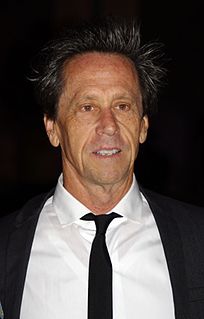A Quote by Philip Larkin
I'd like to think...that people in pubs would talk about my poems
Related Quotes
It's difficult to talk about [W.S.] Merwin's poems, as it's hard to talk about a feeling or a smell. It is what it is, but so much so that it overwhelms both sense and the senses. I aspire to something about his work, that imbues his poems, though I'm not sure I could say what that is. A purity, maybe, the kind of purity that comes from being beaten, like steel.
I don't think people talk about mental illness a lot, but they need to know it's OK to talk about how they are feeling. People are afraid of telling the truth because they think it's going to hurt everyone around them. I've kept so much inside that I've literally lost it. I wish more people would get help when they feel like they need it-- not just to look to medicine, but to the support of others.
I think it's really easy for people to point out hypocrisy in people's lives. It's like yeah, I get on planes a lot, and I drank from a plastic water bottle today - you know what I'm saying? A lot of people would just be like, "Oh, you're a hypocrite. You live in an ecovillage for a month, and then you fly around the world to talk about a movie." Don't think that I don't think about those things! Don't think that that's not, like, a quandary in my life. It can be a pretty intense ethical dilemma. I think it's about figuring out, you know, navigating life.
If you're not mechanically in the community with people from the community trying to talk about our party, talk about school choice, talk about SBA loans for business owners - if someone's not there, nothing is going to change. You also need to have the tone ... people believe obviously you like them. If people don't think you like them, then they're not going to vote for you.
We worked on The Perfect Storm, and I'll never forget, Wolfgang Petersen would talk about a moment. Like a non-speaking moment, where we'd all be sitting around eating dinner, and it would probably last maybe four seconds on screen. But he would sit there and talk about it for about 10 minutes. He knew what piece of the puzzle that scene would be, and if it were six seconds, it would be too long. If it were three seconds, it wouldn't be enough. I'm always turned on with people's enthusiasm like that.
When I worked on a magazine, I learned that there are many, many writers writing that can't write at all; and they keep on writing all the cliches and bromides and 1890 plots, and poems about Spring and poems about Love, and poems they think are modern because they are done in slang or staccato style, or written with all the 'i's' small.






































